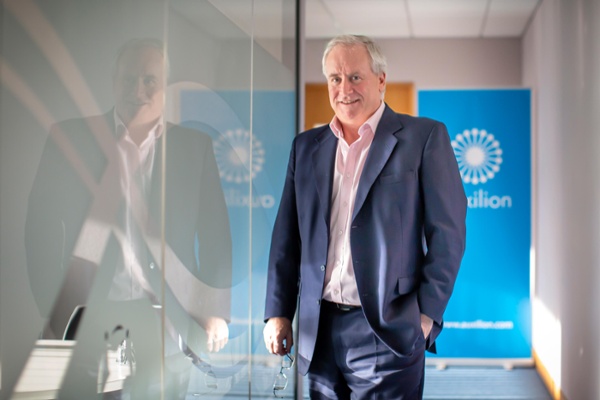- Survey of C-suite executives in larger companies highlights inadequate processes and tools needed to support the modern workplace.
- A third of business have not provided training to staff to show them how to use the technologies implemented to enable hybrid working
- Committed to change - 58% planning to invest in necessary tools to support employees in hybrid workplace
SHEFFIELD, UK. 4 MAY 2023 – More than a quarter (26%) of organisations aren’t equipped to support the modern workplace and the future of working, according to a new survey commissioned by IT service provider Auxilion in partnership with Censuswide. Auxilion’s survey of 102 C-suite executives in larger companies or enterprises (more than 250 employees) across the UK found that business leaders admit to not having the necessary processes and tools in place to support modern working.
The findings also highlighted an alarming lack of training provided to staff - a third (33%) of organisations have not provided training to show staff how to use the technologies implemented to enable productive hybrid working.
“Our latest survey has provided an interesting insight into C-level attitudes towards modern working. If organisations are committing to investment in hybrid working technologies, that’s a great move. An increasing number realise that the workplace is modernising. However, neglecting to train staff to ensure they are as productive as possible is completely counterproductive,” commented Auxilion CEO, Philip Maguire.
The survey revealed that change may soon be on the way though, with 58% of C-suite executives committing to invest in tools to support employees in the hybrid workplace. This formed part of the overall investment strategy for organisations this year. The top areas of IT for investment in 2023 are green technology (38%), hybrid working technologies (37%), cybersecurity solutions (31%), employee productivity solutions (29%) and business applications (28%).
“Business leaders are facing a huge number of challenges - the post pandemic recovery, inflation and the impact of the Ukraine crisis - so now more than ever making the right decisions related to investment matters. From looking at the responses, what is positive is the way leaders are future-proofing their organisations, with a focus on green technology and hybrid working in particular. For many, it may be tempting to batten down the hatches during this uncertain period, but our survey shows that isn’t the case,” continued Maguire.
The survey also sought to understand the motivations of business leaders towards their workplace transformation strategies. For UK C-level executives, enabling hybrid working (40%), cutting costs (34%), and driving business growth (34%) were the main objectives, followed by improving sustainability (32%) and reducing headcount (22%).
In terms of the main challenges faced by business leaders in terms of IT strategy execution, the findings revealed, unsurprisingly, that supply chain issues (35%) , rising costs (30%) and economic uncertainty (29%) were the factors most of concern.
Maguire added: “There’s no doubt that the pandemic forced business leaders to fast forward their shift to the modern workplace. Whilst most have embraced the shift and flourished, there are still challenges for others. Changing working patterns, the reliance of technology and economic uncertainty has increased the complexity for businesses too. While every organisation is different and has specific objectives, all business leaders need to carefully plan their investment in technology. Working with a trusted provider can help on this front in terms of identifying the right solutions and services – from cloud to collaboration – to overcome challenges and capitalise on opportunities.”
-ENDS-
About the survey
Survey conducted by Censuswide, surveying 102 C-Suite executives in larger companies/enterprises (over 250 employees) aged 18+ in the UK, between 13.03.2023 - 20.03.2023. Censuswide abides by and employs members of the Market Research Society which is based on the ESOMAR principles.


